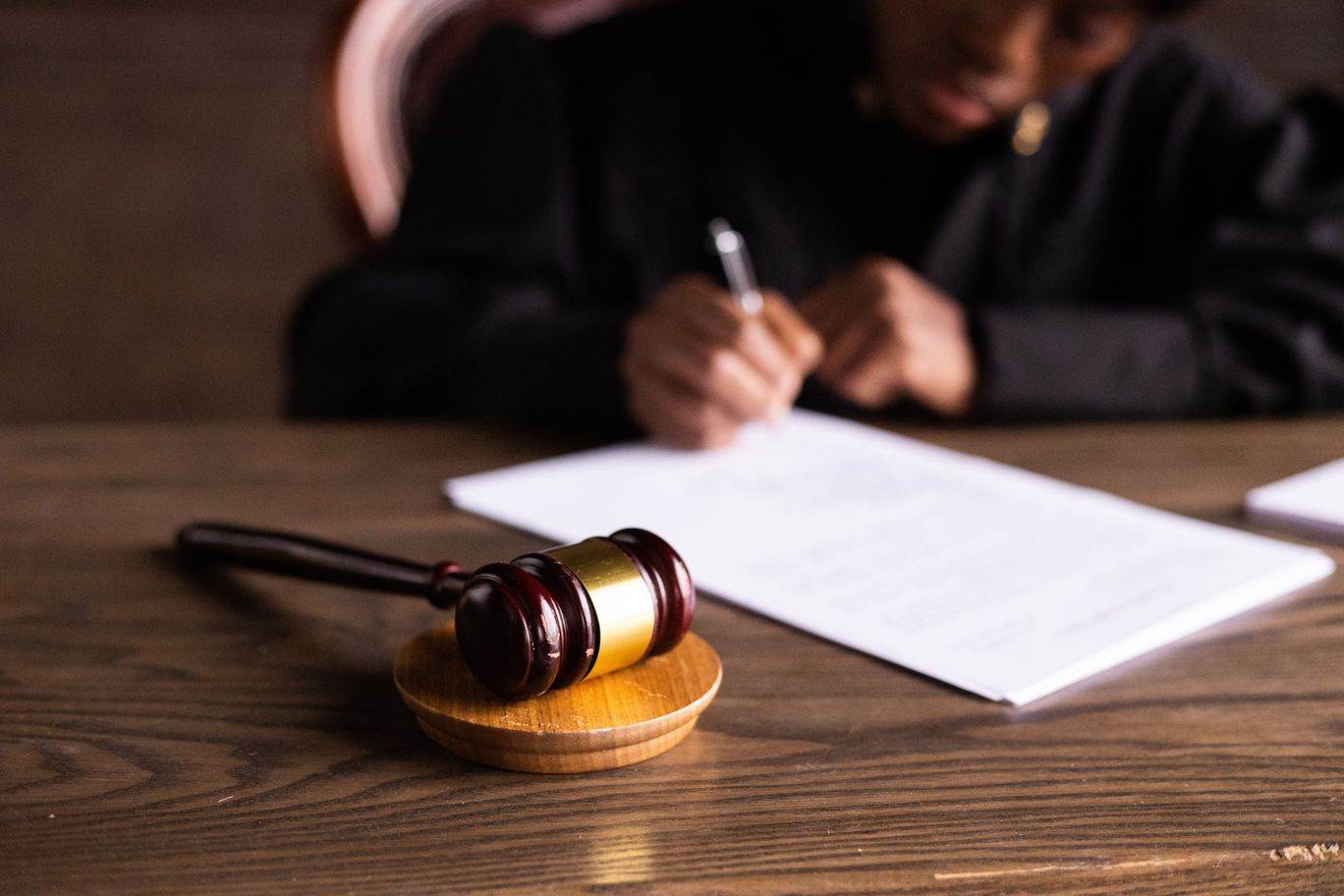
Table of Contents
- What does probate mean?
- When is probate required?
- How long do you have to file probate?
- Probate laws by state
- How do you probate a Will?
- What happens in probate court?
- What happens if you don’t probate a will?
- How long does probate take?
- What property goes through probate?
- How much does probate cost?
- Can you avoid probate?
Leaving a valid Last Will and Testament for your loved ones is the best way to protect their future and support them through an emotional time. However, having a valid Will doesn’t mean that there aren’t other legal steps that your family, and especially your executor, must take after your passing.
Understanding the probate process can help you and your loved ones prepare for an important part of executing your estate plan. This guide will take you through the steps of probate and provide insight to assist your executor in finalizing your estate plan once you’re gone.
What does probate mean?
Probate is a standard legal process that proves the validity of a Last Will and Testament, officially appoints your executor, and supervises the distribution of your estate when you pass away. It’s commonly called probating a will or having an estate in probate.
As the person in charge of your Will, your executor initiates the probate process. At this time, the court validates and authenticates your Will while your executor receives approval to fulfill their duties.
It’s essential to emphasize that probate is a normal part of finalizing someone’s estate. According to the American Bar Association, probate is rarely the calamity some people claim. Still, some want to do what they can to avoid probate. With valid documents and a prepared executor, probate doesn’t need to be a process to worry about.
If you or your loved ones pass away without a Will, the judge will determine the estate is intestate and proceed to follow intestate succession laws for distribution.
For more information on how to avoid intestacy, check out our article: Navigating Intestate Estates.
When is probate required?
The requirement for probate depends on your state laws. Generally, probate is required when property and assets, like real estate, are solely in your name and exceed a set net value. For example, if your estate exceeds $30,000 in net value or you owned real estate in Delaware, your Will must be probated.
Some jurisdictions allow smaller estates to use alternative legal actions or procedures to finalize distribution. These procedures are usually simpler and faster.
For instance, in New York, if you don’t own any real estate in only your name and your personal property is worth less than $50,000 then you have a small estate. Executors of small estates may be able to file a voluntary administration proceeding to avoid probate. Even if your estate has to go through probate, if it’s smaller, it may be able to go through a simplified small estate probate process.
Your state may also have different levels of probate. Like in Arizona, your executor may encounter informal probate when no one contests the Will. This process can make the probate period shorter. Alternatively, they could face formal or supervised probate if there are any legal matters to finalize before distributing the estate.
It’s also essential for executors to note that property in a different state must follow the probate procedures for its location, also known as ancillary probate. This means your executor would need to petition for probate in all the states you have property.
It’s recommended to contact a lawyer for assistance if you or your executor are unsure of anything regarding your estate plan. Your state may even require your executor to have a probate attorney throughout the process.
How long do you have to file probate?
Each state has a required period executors must follow when filing a Will for probate. For example, Florida requires the Will to be filed in court within 10 days of the executor, or custodian, receiving word of the deceased’s passing. In California, probate law requires the executor to file a Will within 30 days. Otherwise, they may be held by the court to have waived their rights to be the executor.
Filing a Will allows the court to determine its validity and continue the probate process if necessary. It’s crucial to inform your executor of the location of your Will, so they know where it is when you pass away. This can help them meet the deadlines to file according to your jurisdiction’s requirements.
LawDepot’s Estate Vault allows you to securely store your estate planning documents in one online spot for you and your executors.
Probate laws by state
Find your state probate laws below to learn more about your jurisdiction’s requirements:
How do you probate a Will?
Probating a Will may have specific requirements based on state laws. However, the process includes the following steps:
1. Filing the Will and petition for probate
To initiate the probate process, executors will first inform the court of your passing by filing your Will with the court clerk. They must also include a copy of the death certificate. Once the validation is complete, they can file a petition to begin the probate process.
Even if your estate doesn’t require probate, your executor will usually still have to file the Will. Filing a Will provides notice to the court that the Will exists and who the beneficiaries are.
2. Receive authority as an executor
Once your executor files the petition, the judge must formally give your executor the authority to administer your estate. Authority is granted in the initial probate hearing by providing letters of testamentary, also called a grant of probate. This authority will allow your executor to access accounts, pay bills, and distribute your beneficiaries’ inheritance.
If the judge believes your executor is incapable of fulfilling their duties or your executor refuses to take on the role, the court will select a new one. A new executor could be another family member (e.g., spouse, child, or next of kin), a beneficiary, or even a creditor.
At this time, the court may require your executor to secure a bond to protect the estate. A bond ensures your beneficiaries and creditors are protected from losses if your executor breaches their fiduciary duties or commits other wrongdoings in relation to your estate. It may also be necessary if your executor lives in a different state.
For example, the District of Columbia requires personal representatives to execute a bond unless you write in your Will that it’s excused or all beneficiaries waive the requirement in writing.
The cost of the bond varies depending on the estate size. In most cases, it’s an expense that your executor will be reimbursed for from the estate.
3. Inform necessary parties
Next, your executor must inform creditors and beneficiaries that they’re filing the probate petition. Your executor will usually have to put out a public notice to creditors, such as online or in local and national newspapers, to alert them of your passing and of the deadline to assert a claim against your estate. Simply posting an obituary is not sufficient notice to creditors.
Providing notice gives creditors a deadline to make a claim for anything they’re owed from the estate. The notice also informs beneficiaries or heirs that a probate hearing will occur. At this point, if someone wishes to contest the Will, they’ll be able to file their petition with the court. If someone does contest the Will, a second hearing will take place.
4. Take inventory of the estate
After informing the necessary parties, your executor will take an inventory and valuation of your estate and present it to the judge. This includes gathering details on all your personal accounts, property, and assets.
5. Pay debts and taxes
When your executor has completed the inventory and receives authority over your estate, they must pay outstanding debts and taxes. Depending on your jurisdiction, this could include estate taxes along with any outstanding federal taxes.
6. Distribute the remainder of the estate
Finally, once taxes and debts are paid, your executor can distribute the remaining property and assets to your beneficiaries according to your Will. As your executor completes the final steps of probate, a judge may oversee the process to ensure it follows the legal requirements.
Once the distribution is complete, your executor will make an account of the estate’s final distribution for the judge to authorize. This account brings probate to a close.
Discuss the role and your final wishes with your executor when preparing your Will. Talking to them can create an understanding of what they’ll have to do when finalizing your estate and the probate process.
What happens in probate court?
The probate court is where the judicial system oversees the execution of your Will. The judge will determine the validity of your Will under state law and ensure your executor is capable of completing their duties.
The court then oversees the repayment of your debts and taxes prior to the distribution to your beneficiaries. If anyone contests your Will, the judge will conduct a hearing to decide if they’re eligible to inherit.
It’s important to note that the details of any probate proceeding are public records once the estate is finalized. The details on the record include:
- The Will
- The petition for probate
- The executor’s name with letters of testamentary
- Beneficiaries’ names
- Estate inventory and paid debts
- Any legal actions related to the estate
Some jurisdictions may cover probate under the surrogate or circuit court rather than a singular probate division.
What happens if you don’t probate a will?
Several consequences can occur if an executor fails to file a Will and petition for probate.
If a Will doesn’t go through probate, there will be an unnecessary delay in your loved ones receiving their inheritance. Certain property cannot be transferred to a beneficiary unless it goes through probate. This typically includes real estate, vehicles, and personal property.
In some circumstances, your executor may even face legal consequences for not fulfilling this duty. Beneficiaries may look to sue for damages because your executor did not follow the correct legal procedure.
In some states, further legal action may be taken against an executor. Like in the District of Columbia, anyone possessing a Will who fails to file it with the proper probate court within 90 days of the deceased’s passing could face fines. They may even face jail time if found guilty of purposely withholding or destroying the Will for fraudulent reasons.
In some states, further legal action may be taken against an executor. Like in the District of Columbia, anyone possessing a Will who fails to file it with the proper probate court within 90 days of the deceased’s passing could face fines. They may even face jail time if found guilty of purposely withholding or destroying the Will for fraudulent reasons.
To help avoid these kinds of issues, it’s crucial to select an executor you know and trust who will do right by your estate and beneficiaries.
How long does probate take?
Probate times can vary from a couple of months to a few years. The time it takes to complete probate depends on factors such as:
- The size of the estate
- The complexity of assets and debts
- The number of beneficiaries
- State and federal taxes
Someone contesting your Will also delays finalizing probate. Say you disinherit a family member who believes they deserve a share of the estate. They can petition the court where probate is filed to challenge the Will’s contents. If the court believes they have legal grounds to contest, an additional hearing will take place to finalize the matter.
Each state has specific legislation for contesting a Will. For example, in Texas, an individual may contest a Will if they’re considered an interested party. Interested parties can either be beneficiaries in the Will, hold a legal interest in the property going through probate, or have a claim against the estate. This can include creditors, spouse or children of the deceased, other potential beneficiaries or heirs who would inherit from the Will if their Will contest is successful.
To help avoid someone contesting your Will, consider adding a no-contest provision. This clause can deter beneficiaries from challenging it, as it’ll ensure that anyone who loses while contesting the document will also lose their existing inheritance.
What property goes through probate?
Certain pieces of property qualify for probate. Typically, solely owned assets and property go through probate, such as:
- Personal property (e.g., vehicles, household items, family heirlooms, collectibles)
- Personal bank accounts
- Real estate
Property that doesn’t need to go through probate includes:
- Assets with direct beneficiaries like life insurance policies
- Individual retirement arrangements (IRAs) or 401k plans
- Property under joint ownership with right of survivorship
- Property and assets in a Living Trust
- Payable on death accounts
To help your executor with an inventory of your estate, create thorough documentation of your property and assets to keep with your Will. This list can help save them time and possibly costs when finalizing your estate.
How much does probate cost?
Probate costs will vary depending on court filing fees, accountant services, appraisals, evaluations, etc. Some people may feel that probate is a costly process for their executor. However, the estate generally covers these costs.
You can choose to put aside funds in your estate for your executor to cover any unexpected expenses while they carry out your final wishes.
Can you avoid probate?
It’s important to remember that probate is a normal process you don’t necessarily need to avoid. However, if you wish to help your loved ones even more, you can look to different estate planning documents to assist in distributing your estate.
A valid Last Will and Testament can ease the probate process by setting clear instructions for your executor and the court. Updating your Will to reflect any new circumstances (e.g., the birth of a child, marriage, purchase of property) and keeping a list of all your assets will also help your executor throughout the probate process.
However, if there are certain pieces of your estate that you would like to avoid going through probate, you can:
- Create a Living Trust. A trust can hold property and assets such as real estate, finances, investments, and personal property. Once you pass away, the items in your trust can be transferred directly to the beneficiaries.
- Gift property. Giving property and assets through a Gift Deed can help avoid probate after you pass away. You can gift real estate, financial investments, money, or personal property.
These two documents can also help keep specific property and its beneficiaries private from public records.
Though probate may seem lengthy and stressful, having your estate plan in order and clear communication with your executor can help ease the process.




